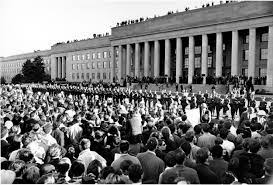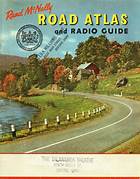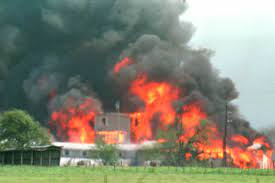In 1969, the United States witnessed one of the most iconic and influential music festivals in history: Woodstock. Held in Bethel, New York, from August 15th to 18th, the Woodstock Music Festival defined a generation and became a symbol of the counterculture movement of the 1960s.
Woodstock was originally conceived as a for-profit venture to be held in Wallkill, New York. However, due to various logistical and legal issues, the event was relocated to Max Yasgur's dairy farm in Bethel, which proved to be a fortuitous change. The festival organizers expected around 50,000 attendees, but an estimated 400,000 people flocked to the site, overwhelming the infrastructure and creating a sense of camaraderie and community.
The festival's lineup featured an impressive array of artists, spanning various genres and representing the diverse musical landscape of the era. Legendary acts such as Jimi Hendrix, Janis Joplin, The Who, Santana, and Crosby, Stills, Nash & Young took the stage, captivating the massive crowd with their electrifying performances.
Woodstock became more than just a music festival; it became a symbol of peace, love, and social change. The counterculture movement of the 1960s, which advocated for civil rights, anti-war sentiments, and cultural revolution, found its expression and unity at Woodstock. The festival was a peaceful gathering where like-minded individuals came together to celebrate music, freedom, and a vision of a better world.
Woodstock was not without its challenges. The sheer number of attendees overwhelmed the organizers, leading to logistical difficulties such as food and water shortages, inadequate sanitation, and traffic jams. However, the spirit of cooperation and the shared belief in the festival's ideals allowed the crowd to overcome these challenges and create a unique and unforgettable experience.
One of the defining moments of Woodstock was the performance by Jimi Hendrix, who closed the festival on Monday morning. His rendition of "The Star-Spangled Banner" on his electric guitar became an iconic and powerful statement against the Vietnam War and the social unrest of the time. Hendrix's performance encapsulated the spirit of Woodstock, combining music, politics, and cultural rebellion.
Woodstock left an indelible mark on American culture and influenced subsequent music festivals and events. It showcased the power of music to bring people together, bridge divides, and inspire social change. The festival became a symbol of the counterculture movement's ideals and a touchstone for subsequent generations seeking to challenge the status quo and promote peace and equality.
Woodstock's impact extended beyond music and cultural significance. It also had a lasting influence on the music industry, as the event highlighted the potential for large-scale music festivals as a viable business model. The success of Woodstock paved the way for future festivals, such as Glastonbury, Coachella, and Bonnaroo, which continue to draw massive crowds and shape the music industry.





